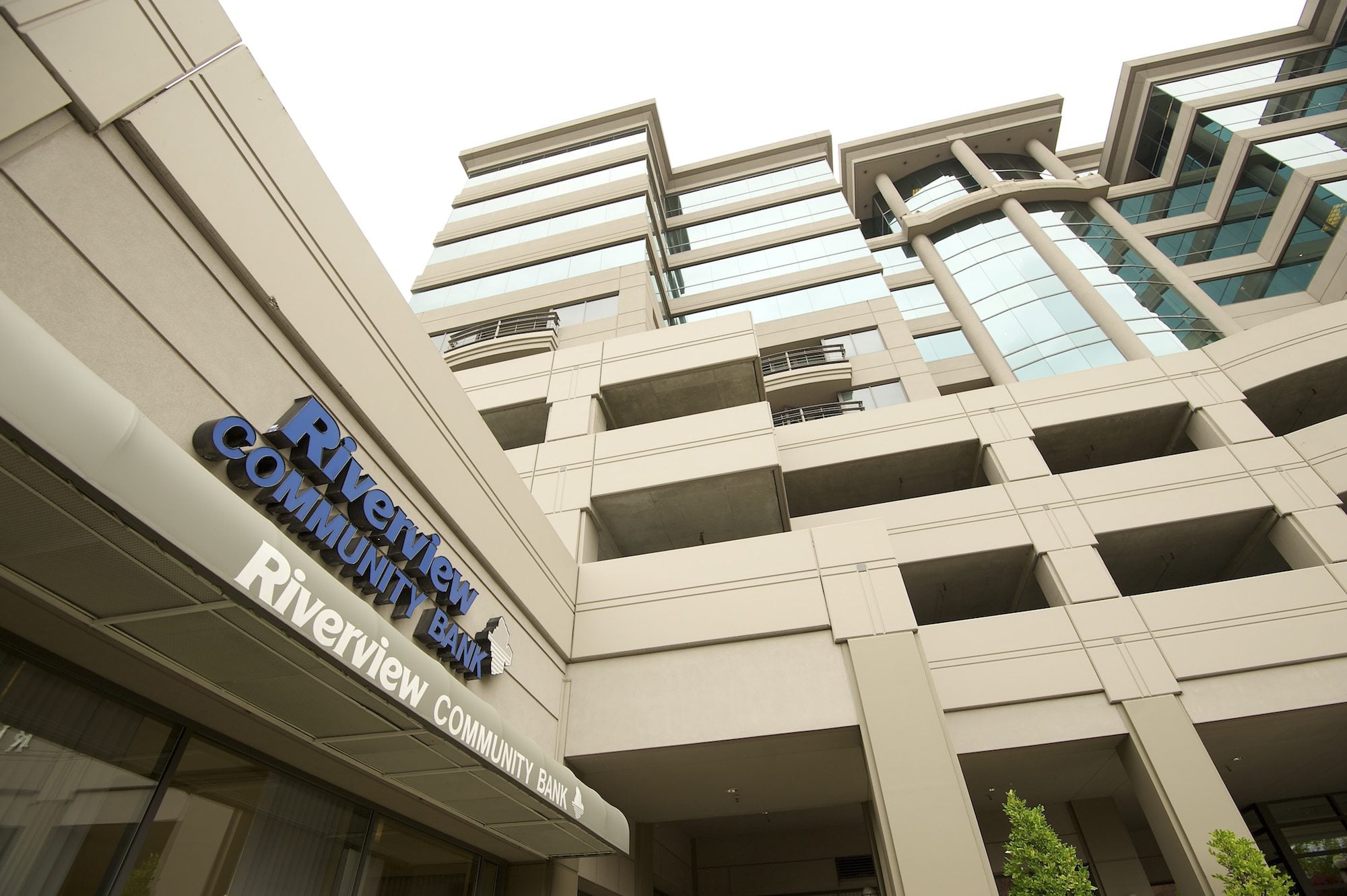Riverview Bancorp, parent of Vancouver’s Riverview Community Bank, has disclosed that it expects to take a second consecutive quarterly loss when it files its quarterly earnings report next month, as it adds to its reserve for bad loans
The bank’s regulatory disclosure, issued after the market’s close Friday, prompted one banking analyst firm on Tuesday to downgrade the bank’s stock to “sell.” The firm, Wunderlich Securities, asserted that the bank will have trouble attracting new investment and suggested that Clark County’s last locally based bank should be put up for sale.
“We believe the only good option remaining is a sale of the company, and we believe there are multiple parties that could be interested in acquiring (Riverview Bank),” the analyst wrote.
Riverview’s top executives took strong issue with that conclusion and said they have no desire to sell the bank. Ron Wysaske, Riverview president and chief operating officer, said the company has developed a new capital plan for raising funds as needed, but said that selling the bank is “kind of a final option.”
“If we joined forces with another bank,
we would be absorbed and would no longer be a community bank,” Wysaske said. “We think we have something the community wants and needs.”
Pat Sheaffer, Riverview’s chairman and chief executive officer, said the analyst never contacted the bank officials before issuing his recommendation based on the sparse regulatory filing. He said the bank has built deep reserves that exceed regulatory requirements.
“We are safe and sound,” Sheaffer said. “We have literally millions (of dollars) in cash and we have access to hundreds of millions. Liquidity is not an issue.”
Both men acknowledged that the economy is their bank’s real stumbling block, but said they are seeing signs of improvement with construction projects in downtown Vancouver and even some new housing development. They took pride in not taking any funding from the federal Troubled Asset Relief Program and for working as long as possible with struggling borrowers during the long economic downturn.
“A community bank reflects a community’s strengths, but it also reflects its weaknesses,” Wysaske said.
In its regulatory filing, Riverview said it will add between $14 million and $15 million in loan-loss reserves for the bank’s fourth fiscal quarter ending March 31. The added reserve will give the bank a loan-loss balance of $18 million to $19 million. It predicted a net loss for the quarter of between 55 cents to 60 cents per share when it releases its earnings next month.
Riverview’s stock price dropped Monday from $2.04 per share to $1.90 per share, and then closed Tuesday at $1.88 per share. The bank has $862 million in assets.
In the previous quarter, Riverview reported a $16.6 million loss as it increased its reserve for loan losses by $8.1 million and set aside another $8.7 million as a non-cash bookkeeping entry that can be reversed if the bank returns to profitability. Its loss in that quarter, which ended Dec. 31, 2011, was 74 cents per diluted share.
Kevin Reynolds, the Memphis-based analyst who wrote Wunderlich’s report, said he was confident that Riverview is not in danger of failing. But he said its leaders should consider a partnership with another community bank, even mentioning Tacoma-based Columbia Bank and Olympia-based Heritage Bank as possible partners.
“One good option for shareholder value is find partners and do something, rather than sit back and crossing your fingers and hoping to right the ship,” he said in an interview. With Riverview management, he said, “there’s a certain sense of identity and ownership. You want to make sure you get it right. I think that’s where the difficulty lies.”
Brian Vance, president and CEO of Olympia-based Heritage Bank, who said he read the Wunderlich Securities report, declined to comment on whether Heritage would be interested in partnering with or acquiring Riverview.
Speaking generally about Heritage’s strategy, Vance said the bank is interested in making acquisitions.
He said Heritage has $1.4 billion in total assets, with sufficient capital to grow to $2.4 billion, and that he sees Vancouver “as a strategic opportunity for us for expansion.”
In the past couple years, Heritage completed two FDIC-assisted acquisitions, one of which was Cowlitz Bank, “which then allowed us to make an entry to Vancouver and across the river to Portland,” Vance said.
In the bigger picture, Vance said, he expects to see “a lot of consolidation” of small community banks over the next five years as the banking landscape divides into three basic types.
On the one hand, you have the nation’s Too Big to Fail banks (those with $10 billion or more in assets), Vance said, and on the other you have banks that are “too small to prevail.” Those “too small to prevail” banks, with less than $1 billion in assets, will struggle with higher regulatory costs, a lack of access to capital markets and fewer economies of scale, Vance said.
But those banks with assets between $1 billion and $10 billion will continue to have access to capital markets and to enjoy economies of scale, Vance said. “That’s going to be the space where most of the growth is going to take place in,” he said.





